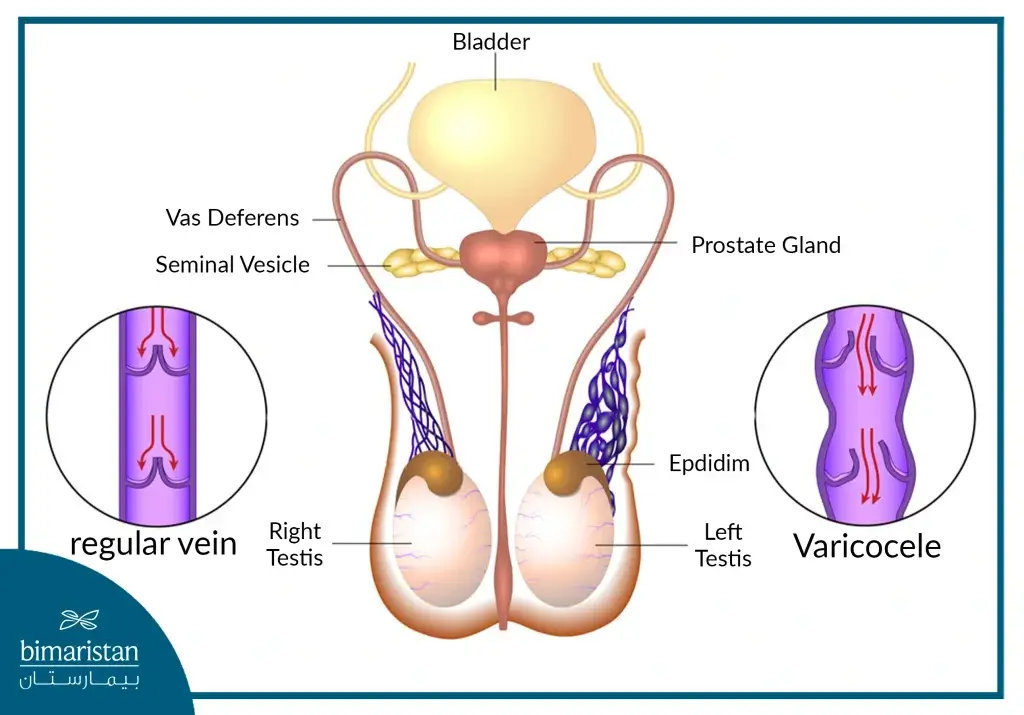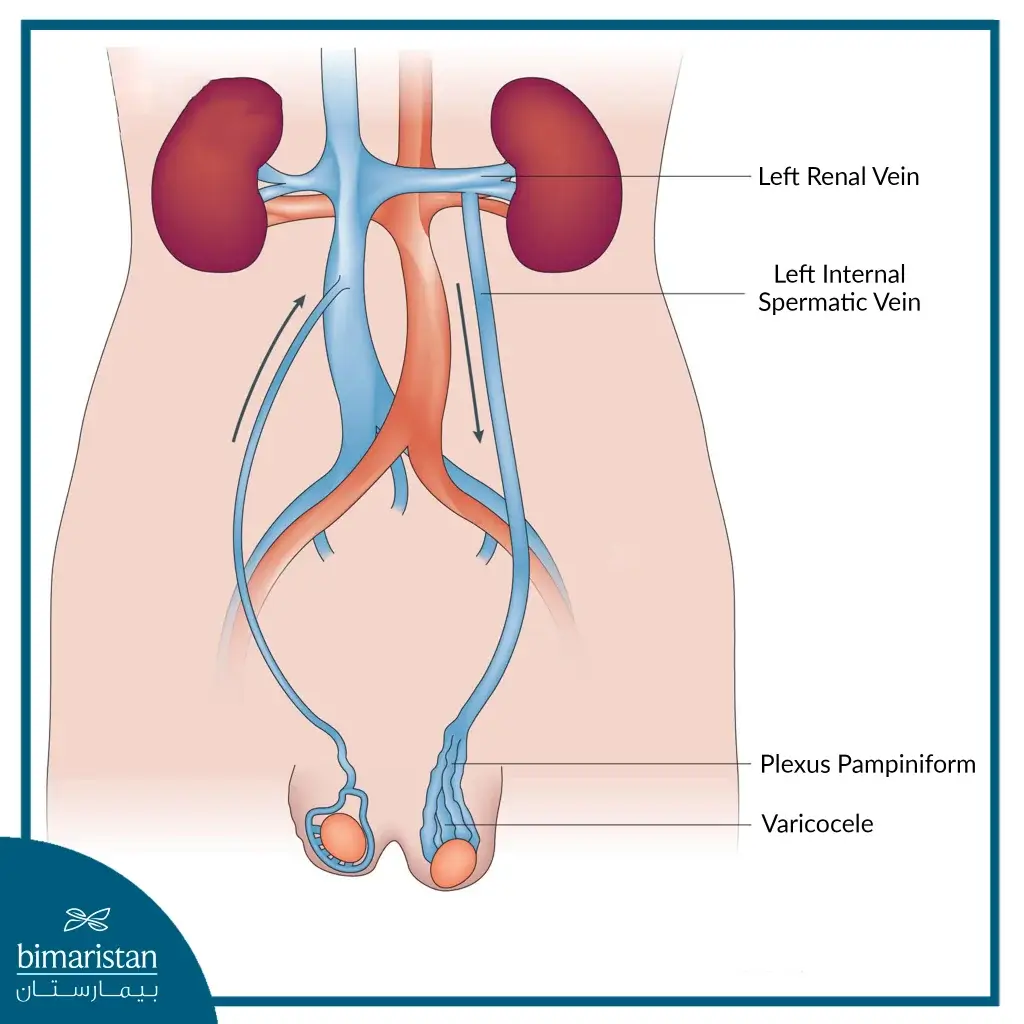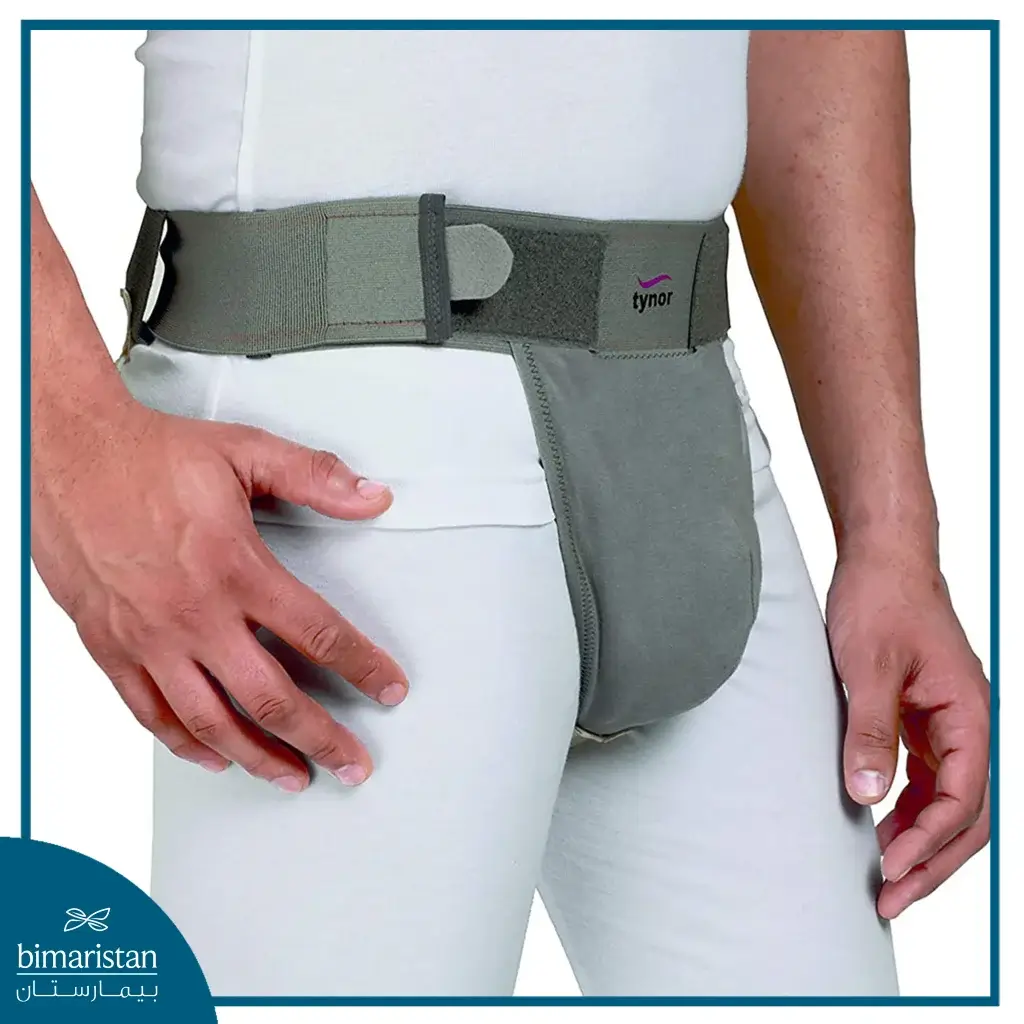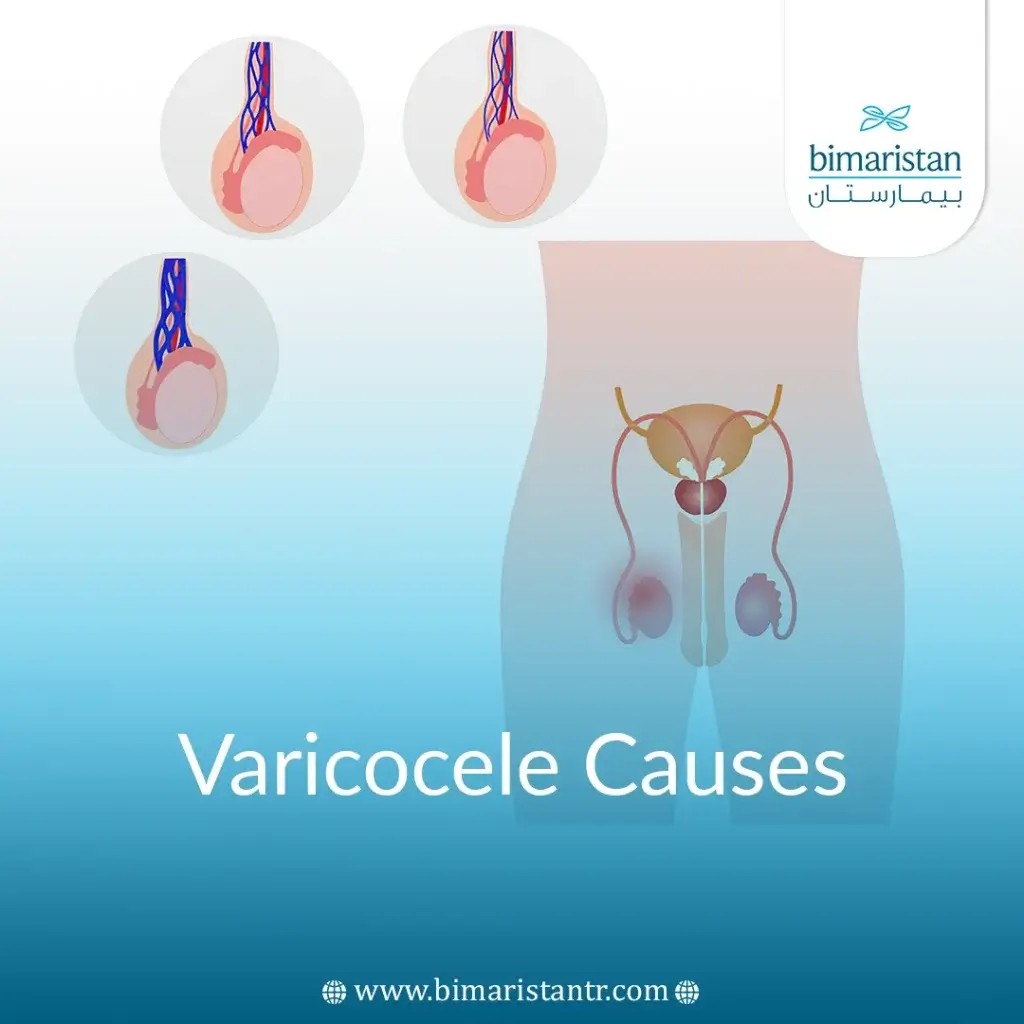Varicocele is a common but often undiagnosed condition that affects a large number of men worldwide. Studies suggest that about 15% of men worldwide suffer from varicocele, and its prevalence can rise to about 40% in men with infertility issues.
Understanding varicocele causes is critical for early diagnosis and effective intervention, as the condition can lead to discomfort, affect fertility, and can lead to long-term complications if left untreated.
What is varicocele, and how does it form?
Varicocele causes are primarily linked to abnormally enlarged veins within the scrotum, known as the testicular plexus. These veins play a crucial role in draining blood from the testicles. When varicocele causes these veins to dilate or swell, it disrupts normal blood flow, potentially leading to complications such as testicular shrinkage, discomfort, and infertility.
The main cause of varicoceles is a malfunction of the valves within the veins. These valves regulate blood flow, and when they fail to function properly, blood pools in the veins, causing them to expand and become more visible. The majority of cases are on the scrotum’s left side because the causes of varicocele affect the left side more than the right side due to anatomical differences in the veins draining the left testicle.

Common symptoms of varicocele
Varicoceles can range from mild to severe, with many individuals experiencing no significant pain or discomfort and are often unaware of the condition; however, when varicocele causes symptoms, they can vary in severity and may include the following:
- Pain or discomfort in the scrotum: One of the most common causes of varicocele, this pain is often described as a dull ache or heaviness in the scrotum that worsens with prolonged standing or physical activity.
- Visible or palpable enlarged veins: Varicocele may cause the veins in the scrotum to appear as a soft, lumpy mass that often resembles a “bag of worms,” especially when standing.
- Testicular atrophy or shrinkage: Varicocele causes reduced blood flow to the testicles if left untreated, which can cause one or both testicles to shrink over time.
- Infertility: Varicocele is one of the most worrisome causes of infertility, as this condition can increase the temperature of the scrotum, which negatively affects sperm production and quality, leading to male infertility.
If any of these symptoms occur, it is important to seek medical attention to determine if it is one of the varicocele causes, rule out other potential issues, and possibly perform an operation to treat varicocele.
Varicocele causes
Understanding the causes of varicocele is essential to preventing and treating the condition. Varicocele can be categorized into two main types: Primary and secondary.
Primary varicocele causes
The leading causes of varicocele are usually related to anatomical factors that affect the veins in the scrotum. Some of the main causes of primary varicocele include the following:
- Dysfunctional venous valves: One of the most common causes of varicocele is a malfunction of the one-way valves in the scrotal veins. These valves regulate blood flow, and when they fail to do their job, blood pools in the veins, causing them to enlarge.
- Anatomical differences: Another important cause of varicoceles is anatomical differences, especially on the left side of the scrotum. The left testicular vein drains into the left renal vein at a right angle, increasing the potential for blood flow problems. In contrast, the right testicular vein drains directly into the inferior vena cava, reducing the chances of blood pooling and varicocele formation.
- Hormonal imbalance: Although rare, hormonal imbalances or genetic factors can also contribute to the development of primary varicocele. These factors may affect the venous valves’ function or the veins’ structure, leading to the formation of varicocele.

Secondary varicocele causes
Secondary varicocele causes are usually underlying medical conditions that affect the veins and blood flow in the scrotum. Some secondary causes of varicocele include the following:
- Abdominal tumors: Tumors or growths in the abdominal area can obstruct blood flow, especially those that compress the veins, draining blood from the scrotum. This can lead to secondary varicocele, as the pressure causes the veins to dilate as blood pools.
- Kidney disease or blockage: Conditions such as kidney cancer or renal vein thrombosis can obstruct blood flow to the scrotal veins, leading to secondary varicocele by impeding normal blood drainage.
- Pelvic tumors or masses: Similar to abdominal tumors, tumor growth in the pelvic area can obstruct blood flow, leading to secondary varicocele by interfering with vein drainage.
- Increased intra-abdominal pressure: Conditions that increase intra-abdominal pressure, such as chronic constipation, obesity, or heavy lifting, can contribute to secondary varicocele by putting extra pressure on the veins in the scrotum.
Understanding varicocele’s different causes, including primary and secondary factors, is critical for accurate diagnosis and effective treatment.
How can varicocele be prevented?
When the causes of varicocele are properly understood, preventive measures can be applied very effectively. While varicocele develops gradually, often due to genetic factors or anatomical differences, several preventive measures can help minimize the risk of varicocele or slow its progression:
- Avoid prolonged periods of standing or sitting: Sitting or standing for long periods of time can impair blood circulation and increase the risk of varicocele. To minimize this risk, it is important to take regular breaks to walk and improve blood flow, especially if the patient has a sedentary lifestyle.
- Maintain a healthy weight: Obesity and excess weight contribute to increased intra-abdominal pressure, which can worsen the causes of varicocele. Regular exercise and a balanced diet can help prevent the condition.
- Avoid heavy lifting: Lifting heavy objects causes pressure on the veins in the abdomen and scrotum, increasing the risk of varicocele. When lifting is necessary, using proper technique and equipment can help minimize the pressure on the veins.
- Treating underlying health issues: Conditions such as chronic constipation, kidney issues, or pelvic tumors can contribute to the causes of varicocele. Regular checkups and treatment of any underlying health issues are key to minimizing the risk of varicocele.
Treatment options for varicocele
Varicocele treatment is usually recommended when the condition is significantly associated with pain, discomfort, or fertility issues, often as a result of untreated varicocele causes. Various treatment options are available, from non-surgical approaches to more invasive surgical treatments.
Surgical treatment for varicocele
Surgical intervention is often the most effective treatment for varicocele, especially when varicocele causes infertility or severe symptoms. The following surgical options are commonly used:
Varicocelectomy
This is the most common surgery for varicocele, where the enlarged veins are removed or tied off. The removal can be done through several options such as open surgery or microsurgery. Microsurgery is the most effective way to reduce complications and achieve optimal results.
Laparoscopic surgery
This method involves small incisions through which a camera and surgical instruments are inserted to remove or embolize the varicocele. Laparoscopic surgery offers a faster recovery time compared to traditional open surgery.
The choice of the type of surgery depends on the severity of the varicocele, the patient’s overall health, and the desired results. The surgeons at Bimaristan Medical Center offer a range of advanced surgical techniques to effectively treat the causes of varicocele.
Non-surgical treatment for varicocele
Non-surgical treatments may be sufficient for some patients, especially when varicocele causes little pain. Nonsurgical options include
Varicocele Embolization
It is a minimally invasive, non-surgical procedure where a catheter is inserted into a vein, and a coil or small material is used to block the affected veins. Embolization is often recommended for patients who prefer a minimally invasive option but still need treatment for the underlying causes of their varicocele.
Scrotal support device
Wearing supportive underwear or a scrotal support device can help minimize discomfort and prevent the condition from worsening. This is often recommended for individuals with mild symptoms caused by varicocele.

The use of pain relievers
Over-the-counter pain relievers such as ibuprofen or acetaminophen (Cetamol tablets) may temporarily relieve the mild pain or discomfort associated with varicocele. However, these medications do not address the underlying cause of varicocele.
Lifestyle modification
Adopting a healthy lifestyle, such as maintaining a healthy weight and avoiding excessive physical stress, can help relieve varicocele symptoms and prevent its development.
If nonsurgical treatments are not effective in managing the varicocele causes, surgery can still be considered for long-term pain relief.
Varicocele causes play a crucial role in understanding this common condition affecting men’s reproductive health. Identifying these causes helps in addressing symptoms, implementing preventive strategies, and exploring treatment options.
Sources:
- Johns HopkinsMedicine
- Aurora Health Care
- Milton Keynes University Hospital
